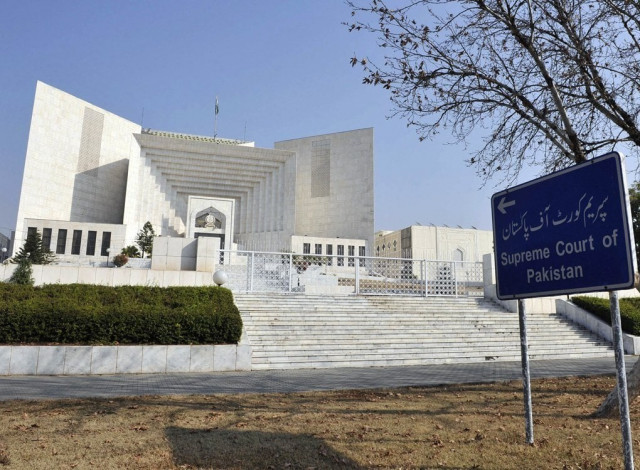SC conditionally grants stay on super tax
Stay given on banking companies and individuals whose income is above Rs500m

The Supreme Court on Thursday conditionally granted stay on the imposition of additional income tax on banking companies and individuals whose income is above Rs500 million.
A three-judge bench led by Justice Umar Ata Bandial ordered the petitioner companies and individuals to deposit 50% of the disputed amount maintaining that the stay would be effective after it.
The bench also granted leave to appeal against high courts orders against the companies/individuals.
The government, in 2015, had imposed super tax on banking and non-banking entities with annual income greater than Rs500 million for the rehabilitation of internally displaced persons (IDPs) in the tribal areas of Khyber Pakhtunkhwa. Its application was, thereafter, extended through various finance acts.
Earlier, the Lahore High Court (LHC) had also decided the matter of imposition of super tax under Section 4B of the Income Tax Ordinance 2001 as "constitutional and valid".
The petitioners had challenged super tax on the basis that it was not a tax because it was imposed for a special purpose, whereas tax was compulsory early collection of money for public purposes without any special objective benefiting any particular class of person.
On Thursday, counsel for a few companies Makhdoom Ali Khan requested the apex court to grant leave against the high court judgment.
The lawyer contended that whether super tax imposed under section 4B of the Income Tax Ordinance, 2001 for the specified purpose of “rehabilitation of temporarily displaced persons” was ultra vires the constitution in view of the test for validity of tax laid down by the LHC in Azgard Nine Limited v Pakistan; 2013 PTD 1030 at 1035 (para.8) and confirmed by the Hon’ble Court in Workers Welfare Fund v East Pakistan Chrome Tannery; PLD 2017 SC 28 at 45 (para.14), wherein it was held that the distinguishing feature of a tax is that it imposed a “common burden” for raising revenue for a general as opposed to a “specified and restricted purpose”.
"Whether super tax not being a taxation measure in view of the criteria spelt out by this Hon’ble Court could have been levied through a Money Bill", he further questioned.
Khan also asked “whether the revenue was kept in the Federal Consolidated Fund or a special fund is not determinative of the measure being a tax as held by this court in Federation of Pakistan v Durrani Ceramics; 2014 SCMR 1630 at 1645 (para.18) and Khurshid Soap & Chemicals Limited v Federation of Pakistan at p.45 (para.38)."
Whether in the absence of clear language the levy of super tax on income which has already been subject to income tax is constitutionally impermissible double taxation," he added.
The counsel also inquired whether super tax does not fall under either Entry 47, 48 or 52 of the Fourth Schedule to the Constitution.



















COMMENTS
Comments are moderated and generally will be posted if they are on-topic and not abusive.
For more information, please see our Comments FAQ